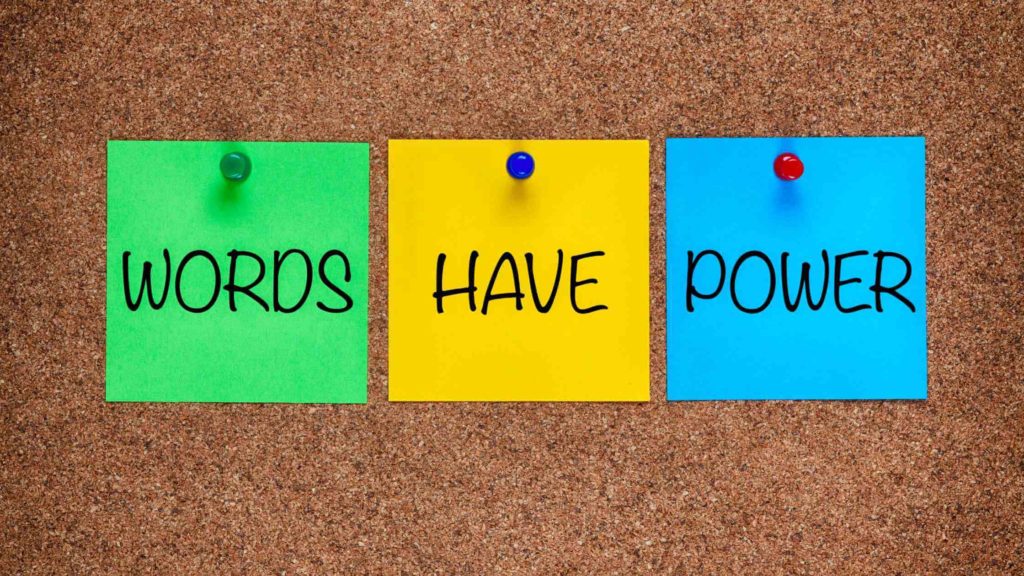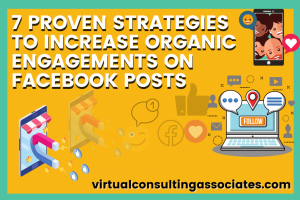We all know that words have meaning; if they did not human communication would be fundamentally different. But have you ever stopped to look at powerful words can be? Edward Bulwer-Lytton wrote the now-famous adage, “the pen is mightier than the sword,” to make the point that with words you can persuade and change opinions far more effectively than by force. Words are more complicated than most people realize; they all have denotations—what their dictionary definition is. But words also have connotations—what they make you think and feel. These connotations help determine what words are power words.

What Are Power Words
In business and marketing words need to be selected with precision. Is your product brown? Or is it hazel, sepia, sorrel, or mocha? Does it provide good quality or amazing quality? Research shows that the word you use to describe a car accident (“contacted” vs “smashed”) can change the way an eye witness views the event. Words can induce feelings and emotions in us and conjure images that affect how we respond without us ever realizing the impact the words had on us. Persuasive, descriptive words that trigger psychological or emotional responses- positive or negative- are called power words.
Marketers use power words to improve their content and compel their audiences to follow calls to action. The type of power words used depends on the goal of the marketer, but there are ten emotions that can help marketers, and power words that conjure each of these feelings.
- Fear
- Anger
- Greed
- Desire
- Curiosity
- Forbidden
- Encouragement
- Trust
- Vanity
- Laziness
Fear
Fear is a negative emotion, but a powerful motivator- at its root it touches on our most basic instinct to stay alive. Even small levels of fear connect to that and inspire us to take action. People are afraid of missing out, failing, making mistakes, and embarrassing themselves. You don’t want to scare your audience with your product, but you do want them to think about what they might miss out on if they don’t sign up for your email list or don’t buy your product today.

Anger
Anger is also a negative emotion, and it influences our perception and reasoning. It can make us irrational. You obviously do not want your audience feeling anger toward your brand, but if you can harness anger directed in another direction, you can influence your audience to take action with you. For example, if your audience feels that they have been taken advantage of or ignored by other companies and your product can help them, their anger towards your competitors can benefit your business. As a bonus, when your audience feels they have been misled or ignored and you offer the solution, you gain their trust.

Greed
Greed is the natural propensity to want more things- even if they are not needed. Everyone is a little greedy, it is part of being human. You might want a higher salary, a newer car, or the last piece of cake. By using power words that evoke greed, you can make something seem more valuable. Greed power words appeal to the feelings of scarcity and loss aversion or make your audience feel like they are getting the better bargain.

Desire
Desire fits pretty naturally with marketing. We want the customers to want our product. If we can use words to increase our audience’s desire for our products they will be more likely to purchase. If the desire is strong enough it can overcome rationales customers create to avoid following the call to action. Pairing desire power words with power words that inspire curiosity can create headlines and email subject lines where clicking is irresistible.

Curiosity
Curiosity is the urge to know more about something. Humans are naturally inquisitive creatures and we crave answers. When people read something intriguing, they want to find out more—that is how we are wired. Curiosity power words are designed to get people to click on something based on information that you are about to share. They can be great for getting clicks, but you want to make sure that you can deliver on your headline insinuations or you will hurt your brand reputation.

Forbidden
Forbidden power words are those that make you feel like you are doing something that someone has tried to stop you from doing. Or learning something someone has tried to keep a secret. These words can inspire feelings similar to those created from curiosity power words, but they are more intense. The desire to find answers you are not supposed to have is a naturally hard-wired condition. The great thing about inspiring these feelings is that when you supply your audience with the forbidden information it builds trust and confidence in you and your brand.

Encouragement
Encouragement power words increase the energy and enthusiasm of your customers. Using these words can allow you to give your readers a pep talk and charge them up. Encouragement power words are great for getting your audience excited about an upcoming event or product. When your audience is happy and feels good they are more likely to be receptive to your messaging. If they associate those positive feelings with your product because they are reading your newsletter while you use these power words, your brand can benefit from transference.

Trust
Trust is essential to the customer-brand relationship. It is built over time but using power words that invoke feelings of trust can increase the level of trust your audience has in you. Blogs, emails, social media posts, and web pages are all places where you should be building brand trust. When your customer’s trust in you increases it means that they feel safe in their interactions with you. If your audience does not trust you they will not buy from you.

Vanity
No one likes to label themselves as “vain” but just like greed, it is a natural human tendency. People care about how they are perceived. Some people care about losing weight or improving their athletic prowess. Others care about clothing and accessories making them look attractive and successful. People also care about credentials that make them appear intelligent or powerful. Research shows that vanity is a driving force in purchase decisions. People are willing to incur personal costs to achieve their desired public image. We buy things that we think will make us look good physically and intellectually. And we buy things that we think will make us look successful.

Laziness
Although laziness has negative connotations, using words that appeal to laziness can help your marketing. People do not want to run at 100% 24/7. Sometimes this means that your laziness power words invoke efficiency and getting more done with less effort, and sometimes this means that your laziness power words invoke a greater avoidance of work. Either way, if it seems like you can take work away from your customer, this will be appealing.

Power Words In Practice
Using power words is a proven way to influence your brand and product perception. Power words should be used on your website home and product pages, in headlines, email subject lines, video titles, opt-in boxes, and your call to actions. But of course, you need to have a clear marketing plan when you start. As you write your newsletter or design your web page make sure you know clearly what your call to action is and what will drive your audience to follow it. Once you have that plan and know your customer’s motivation use the appropriate power words to increase your marketing success.
You May Be Interested In:
5 Ways To Make Your Email Subject Line Work For You



